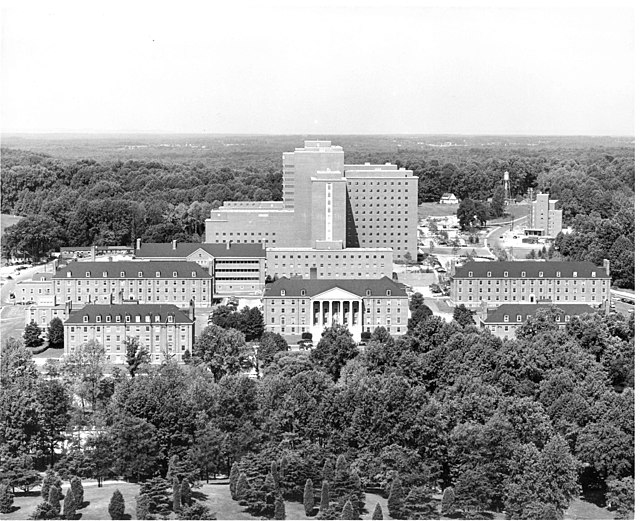National Institute on Drug Abuse
The National Institute on Drug Abuse (NIDA) is a United States federal government research institute whose mission is to "advance science on the causes and consequences of drug use and addiction and to apply that knowledge to improve individual and public health."
Image: William Pollin
Image: Nora Volkow 2013
U.S. Public Health Service reorganizations of 1966–1973
Between 1966 and 1973, a series of reorganizations occurred of the United States Public Health Service (PHS) within the Department of Health, Education and Welfare (HEW). The reorganization by 1968 replaced PHS's old bureau structure with two new operating agencies: the Health Services and Mental Health Administration (HSMHA) and the Consumer Protection and Environmental Health Service (CPEHS). The goal of the reorganizations was to coordinate the previously fragmented divisions to provide a holistic approach to large, overarching problems.
Campus of the National Institutes of Health (NIH) in Bethesda, Maryland around 1963. Although NIH would be largely unaffected by the reorganizations, the National Institute of Mental Health would be transferred to HSMHA in 1968, and then to the new Alcohol, Drug Abuse, and Mental Health Administration in 1973. It would not return to NIH until 1992.
Communicable Disease Center headquarters in Atlanta in 1963. After being renamed the National Communicable Disease Center in 1967, it would find a home in HSMHA, change its name again to Center for Disease Control in 1970, and be promoted to operating agency status in 1973.
Food and Drug Administration (FDA) headquarters in Washington, D.C. around 1963. FDA was moved into the PHS in 1968 as part of CPEHS, and became its own operating agency under PHS in 1970.
President Richard Nixon signing the Clean Air Amendments of 1970. Along with the National Environmental Policy Act, it provided the context in which Reorganization Plan No. 3 of 1970 was enacted, creating the Environmental Protection Agency and leading to the demise of CPEHS.






